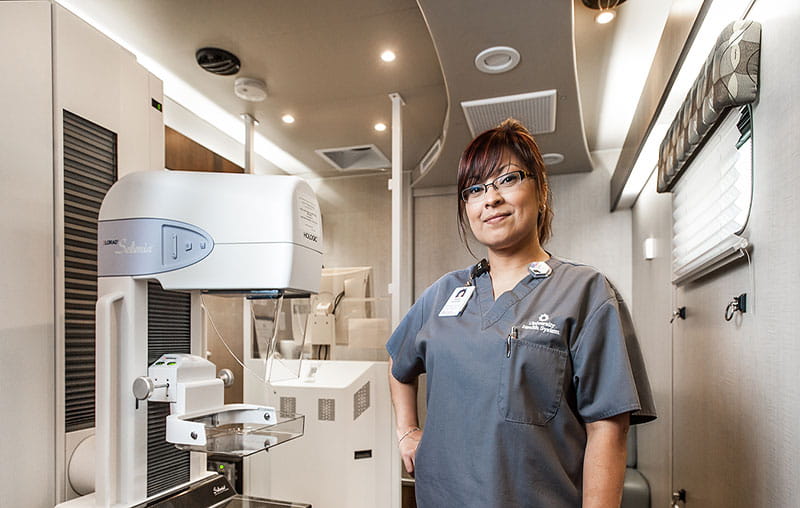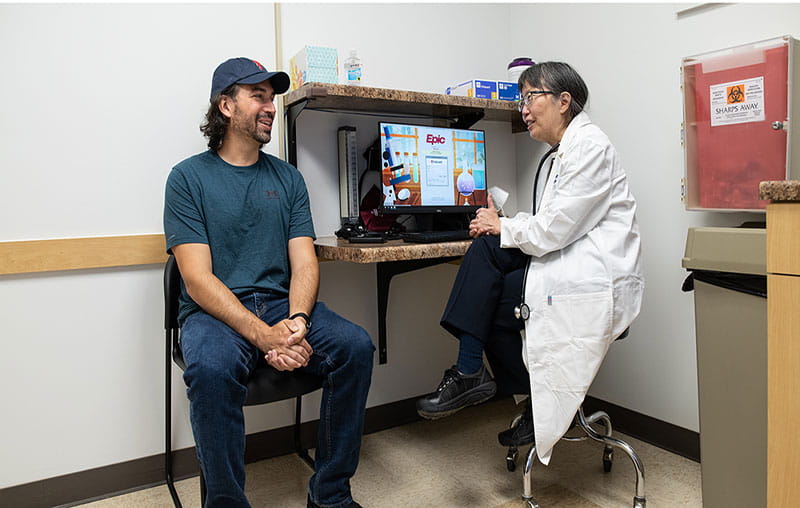After struggling for years with substance use disorder and coping with the loss of her 8-year-old son, Jeanette was at the end of her rope. When she was arrested for DUI, it came as a blessing in disguise.
The Bexar County Drug Court program and the behavioral health services provided by University Health’s Detention Health Care Services at the Bexar County Jail helped turn her life around and take the first steps toward healing.
Mental Health Services in Jails
The Bexar County jail is the largest provider of mental health services in the county, according to Sally Taylor, M.D., chief of behavioral medicine at University Health. “It's an opportunity for people to get treatment sometimes for the very first time,” Taylor said. “We have nursing staff at the front door who assess every person that comes into the jail – and that's hundreds of people a month.”
University Health offers behavioral health services for those in the jail with substance use disorder, including:
- Detox
- Treatment programs
- Crisis intervention
- Substance use disorder counseling
Behavioral Health Services at University Health
University Health staff evaluate those who come into the jail, refer to mental health services and psychiatry when needed and may receive medications. The mental health teams, led by Denise Descoteaux, LCSW, LCDC, continue to evaluate and help plan continuity of care when released. They often coordinate with the courts.
“We refer people like Jeanette to Judge Glenn and his team to see if they qualify for his programming,” Descoteaux said.
Bexar County Drug Court
District Judge Ernie Glenn is the judge of the Bexar County Drug Court. “The additional support we provide in our program … shows that we care about them, it tells them that they're not forgotten,” Glenn said. “I've heard from a lot of people in the program that they appreciate that we know who they are, we know their names, and that's not like the criminal justice system in general.”
Jeanette has graduated from the dual diagnosis program at the Bexar County Drug Court and finished her probation. “When I got sober my whole life changed for the better,” Jeanette said.
“There’s Always Hope”
Dr. Taylor wants people to know that there are resources available when you are ready to get help. “Jeanette’s story is one of hope, and people need to realize that there's always hope, especially if you're ready to get treatment,” Taylor said. “As soon as you're ready, take that first step because again, sobriety and recovery are important to get the life that you deserve.”
Jeanette has now been sober for about 18 months. “I just want to let anybody who is an addict right now that there are resources out there. Don't give up hope. You can recover and live a good, sober, healthy life,” she said.
Recovery and Sobriety Resources at University Health
University Health has recovery and sobriety resources for everyone, not just those who are currently incarcerated. For more information, please visit UniversityHealth.com/Resources.




